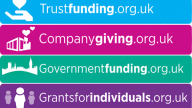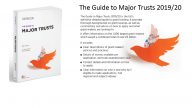Top 4 tips for obtaining feedback
Feedback has consistently been the key to unlocking funding, cooperation and goodwill. Here are 4 top tips carefully chosen to help you.
In today’s world of oversubscribed funding pots and demands for data, we all understand the value of getting feedback on our work. When you’re asking busy charities or vulnerable people for feedback, we should make it as easy as possible.
Here are a few tips I’ve picked up from over ten years working with charities as a grant giver, fundraiser and project manager.
Be upfront
Honesty is the best policy. When you start working with a charity, group or individual, be clear that your work is reliant on being able to explain the difference you are making. Explain that stories, feedback -both good and bad- and the holy grail of a photo or video will help the service continue. This gives back control and will stop your request coming out of the blue. You might also be surprised how much more thought people give to it if they know you will be asking for their feedback.
Be specific
Feedback is a catch-all term that can mean almost anything – a questionnaire, speaking to a member of staff or volunteer, a quote, photo or interview to name a few. Photos and videos might not always be appropriate if your service is confidential or supports vulnerable people, but anonymised feedback still works. Be specific about what you need to make it easier for people to respond. A video of a member of staff explaining your work, a photo of your volunteers or a quote from a service user all tell a great story.
Separate feedback and service provision
There are many reasons why it might not be appropriate or even safe for a beneficiary to give you every type of feedback. Making it a condition of being involved with an essential service is therefore both risky and potentially unethical to enforce. More worryingly, you will probably put off those who most need your help. Provide a separate channel for giving feedback in sensitive situations and accept that you are unlikely to get something from everyone, but that’s okay!
Feedback is just the beginning
Knowing what people think of you is great. Communicating it to funders, partners and the public is even better. It’s easy to run out of time to do the most important bit – acting on what you find out to improve what you do. Build time into your projects and use what you are told to reconsider your approach; the wording you use, how your website works and maybe even the service itself. “Keep doing what we’ve always done” is rarely enough.
Hopefully these tips will help you get the most from what you’re already doing. In Kind Direct works with a network of charities, businesses and supporters and receiving feedback is built into our processes and evaluation. Take a look at our 2018 Impact Report and let me know what you think!

